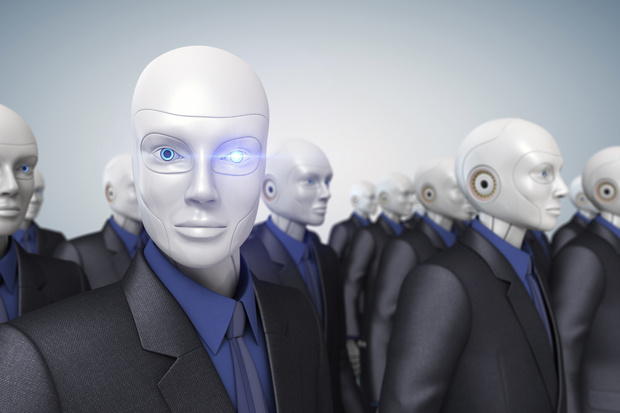Source – cio.com
It’s getting pretty hard to escape Artificial Intelligence (“AI”). I don’t mean the impact that AI will have on your life — I just mean the idea of AI. In the business and technology press, a single day does not pass without some reference to the impact that AI is having — or will have — on, well, everything.
Nearly every story is ominous. Either it’s a story about how AI is going to bring about the destruction of the human race or, only slightly less foreboding, the destruction of an entire industry or class of jobs.
Call it morbid fascination, but the cataclysmic potential of AI seems to mesmerize us. All of these dire warnings and predictions may drive click-throughs, but most of the articles about AI are completely missing the point — mostly because they’re focusing on the wrong ‘AI.’
Separating AI myth from reality
While the long-term concerns about AI may be warranted on a societal level, almost no one believes that the threat is imminent in business terms. Moreover, while AI-powered technology is improving in power and capability at a rapid rate, we remain a long way from what many people think of when it comes to the type of AI displayed in movies or presented in the press.
To be sure, rapid advancements in autonomous vehicles and virtual assistants (think Amazon’s Alexa and Apple’s Siri) have led many to believe that we are just moments from AI taking over the world. The reality, however, is much more complex.
Everything that we consider AI today falls into the realm of what is called Artificial Narrow Intelligence (ANI), which is AI focused in a single area. While ANI is continuing to become more expansive in its applications, the ability to fully replace human activity, to any significant degree, will not occur until scientists figure out how to create what is called Artificial General Intelligence (AGI), in which a computer possess the intelligence of a human in virtually all ways.
While experts disagree on the timeframe in which we will achieve AGI (with some thinking that we never will), they widely agree that it will take at least fifteen to twenty-five years before it happens. In the meantime, the impact of ANI on the workforce is a matter of significant debate.
In early 2016, the World Economic Forum produced one of the most widely accepted predictions regarding the impact of ANI and various forms of automation in their Future of Jobs Report. While many saw the report’s forecast that over five million net jobs will be lost to automation by 2020 as a dire indicator, the reality is that the loss still represents a relatively nominal impact when you consider it against the 1.86 billion workers worldwide.
IT and business executives must, therefore, come to terms with the reality of AI’s impact on their businesses in the near-term. That reality is that few, if any, jobs will be entirely replaced by any form of AI or automation.
There is, however, a different ‘AI’ that will have a significant impact.
The other AI: Augmented Intelligence
While all the attention has been on artificial intelligence, and the images of mass job elimination that it engenders, the much larger impact of AI technologies in the immediate future will be in the form of what is called Augmented Intelligence.
Many of the industry’s leading AI technology companies are now focusing on how enterprise organizations can leverage their technology to augment and enhance the productivity and effectiveness of their employees, rather than replace them. This more pragmatic approach offers enterprise organizations with a way to more realistically apply AI technologies and derive immediate competitive advantage in the market.
Industry leaders and innovators such as Maana, CognitiveScale, Darklight Cybersecurity, Cosmo Tech, and others are embracing this idea of ‘AI’ as Augmented Intelligence and are focusing on specific domains in which they can apply AI technologies to help employees make better decisions or work more productively. As a result, even industry stalwarts such as IBM and Microsoft are adopting the shift to a focus on augmented intelligence.
This realigned focus is appealing for two reasons. First, enterprises that were early adopters of AI technologies in the hopes of fully automating and eliminating jobs have found it difficult to realize the expected returns from their investments. Second, while organizations are eager to eliminate highly repetitive and, therefore, easily automated roles, they are also finding that emphasizing humanity and making their employees more productive and effective generates outsized and more immediate returns.
Focusing on your augmented future
Business and IT executives will be wise to ignore the hype and hyperbole that surrounds artificial intelligence as it relates to job elimination and automation nirvana. That does not mean, however, that they can dismiss AI as over-hyped and pay it no attention at all.
The impact of AI-technologies will be significant when applied in the form of augmented intelligence. Enterprise leaders must guide their organizations in its proper application by methodically identifying the unique business processes and human intelligence that are already the source of their competitive advantage. In most cases, they will find that these sources of advantage require significant effort to exercise or are held in the minds of a small set of employees.
These combinations of proprietary business processes and human intelligence will serve as the rich source material from which organizations can build intelligent systems that improve employee productivity and enable faster and better decision making. This augmented intelligence approach is the AI path that matters today and enterprise executives need to be sure that they are on it.
